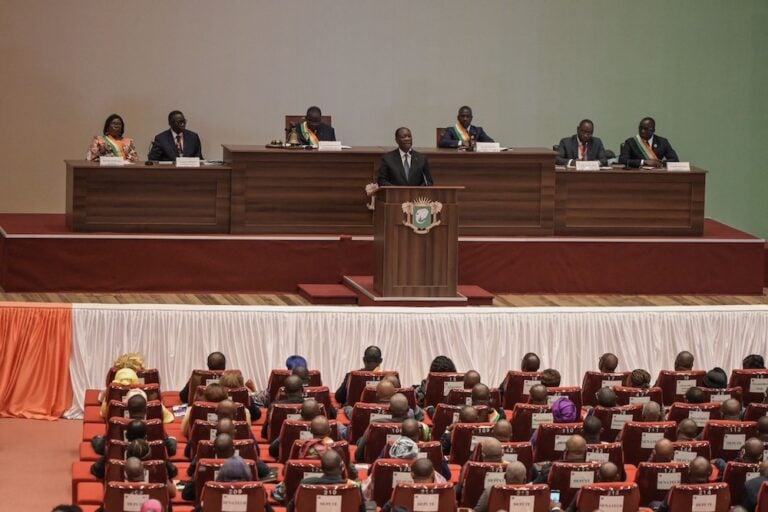(RSF/IFEX) – Reporters Without Borders has called on the Ivorian authorities to withdraw all charges against journalist Claude Dassé of the privately-owned daily “Soir Info”, after he was held for five days at Abidjan investigative police headquarters on a contempt of court charge brought by the state prosecutor. “Blatant abuse of authority is not the […]
(RSF/IFEX) – Reporters Without Borders has called on the Ivorian authorities to withdraw all charges against journalist Claude Dassé of the privately-owned daily “Soir Info”, after he was held for five days at Abidjan investigative police headquarters on a contempt of court charge brought by the state prosecutor.
“Blatant abuse of authority is not the way to regulate the media in a democracy,” the press freedom organisation said. “Whether he has been libelled or not, the state prosecutor should not have the power to hold a journalist incommunicado in a case such as this. There was no reason to hold him, aside from a senior official’s desire for revenge. The charges against him should be dropped for the same reason.”
Dassé, who works for “Soir Info”‘s culture section, was summoned for questioning by state prosecutor Raymond Tchimou on 25 January 2007 and then detained at the Abidjan gendarmerie’s department of investigation in the Plateau district, although imprisonment has not been a penalty for press offences in Côte d’Ivoire since 2004.
After being held for five days and not allowed any visitors, Dassé was finally released on 29 January, but remains charged with contempt of court. The charges stem from a 24 January interview he gave to the privately-owned daily “Le Rebond”, in which he accused the state prosecutor of being “corrupt” for allowing singer Pierrette Adams to flee the country after paying thugs to beat him up in 1997.
“I was held illegally, with criminals, for upsetting a senior state official,” Dassé told Reporters Without Borders shortly after his release. “I was forced to present bogus apologies, but I stand by all of what I said. This is a regrettable case for Côte d’Ivoire.”


